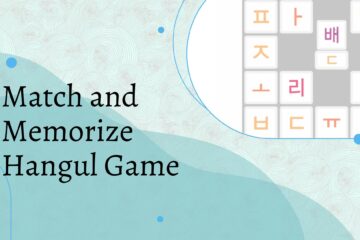Today, we will get into some more grammar and both the plain and honorific ways to say giving in Korean! 주다 is a pretty versatile verb, allowing you to attach it to other verbs to create the meaning of ‘doing something for someone’. So, let’s get into it!

Attaching 주다 to Verbs
주다 stands on its own as the verb to give, but is also frequently paired with other verbs with ~아/~어 주다 to attach the meaning of giving to a sentence. Verbs such as read, buy, send, make, cook, teach, etc., can be paired with ~주다 to say you did the action for someone else.
So for a few examples, you could say:
저는 민혁에게 책을 읽어 주었어요: I read a book to Minhyuk
저는 수영에게 책을 사 주었어요: I bought a book for Sooyoung
저는 현진에게 책을 만들어 주었어요: I made a book for Hyunjin
What is the Difference Between 주다 and 드리다?
드리다 is the honorific way to say giving in Korean and is used in more respectful contexts; giving or receiving something from an elder or your parents, for example. You must use this verb to show respect for teachers, bosses, managers, grandparents, and more.
Since ~드리다 already implies a certain relationship dynamic, it allows you to omit a name or title, implying “you” or a person’s pronouns instead. So for example, instead of saying:
금요일에 어머님께 커피를 사 드렸어요: I bought my mom coffee on Friday
With context, you can say:
금요일에 커피를 사 드렸어요: I bought her coffee on Friday
There are 4 different situations that determine when to use 주다 vs 드리다:
- 주다 – nobody needs respect – friend gave me, I gave younger sibling
- 주다 – subject needs respect – my dad gave me, teacher gave students
- 드리다 – recipient needs respect – I gave my mom, my friend gave their boss
- 드리다 – both people need respect – mom gave grandma, manager gave the ceo
So with an example sentence structure of “X bought Y an apple” in each different use, it would look like this:
- 저는 친구에게 사과를 사 주었어요: I bought an apple for my friend
- 저의 어모님께서는 저에게 사과를 사 주었어요: my mom bought an apple for me
- 저는 어모님께 사과를 사 드렸어요: I bought an apple for my mom
- 저의 어모님께서는 할머니께 사과를 사 드렸어요: my mom bought an apple for grandma
So basically, when to use 주다 vs 드리다 is based on who is receiving! I hope this quick breakdown clears up any confusion.

주다 and 드리다 Example Sentences!
사장님이 보너스를 주었어요: my boss gave me a bonus
오늘 저녁밥을 만들어 줄게요: today I will make you dinner
오늘 저녁밥을 만들어 주세요: please cook dinner today
내일 할머니께 꽃을 사 드릴 거예요: I’ll buy my grandma flowers tomorrow
금요일까지 편지를 보내 드릴 거예요: I’ll send you a letter by Friday
Difference between 줬어요 and 주었어요?
You might see both 줬어요 and 주었어요 come up in writing. These are the exact same; the only difference is combining the ㅜ and ㅓ to make ㅝ. So when reading, you can read it out as 주었어요 (ju-ossoyo) or as 줬어요 (jwossoyo), both are correct.



2 Comments
Sueli Massucato · May 30, 2025 at 2:48 pm
Lição maravilhosa! Muito obrigada por partilhar seus conhecimentos conosco. 감사합니다
Pam · May 31, 2025 at 8:29 pm
Thank you Sueli! 도울 수 있어 기뻐요 😊 I’m happy to help